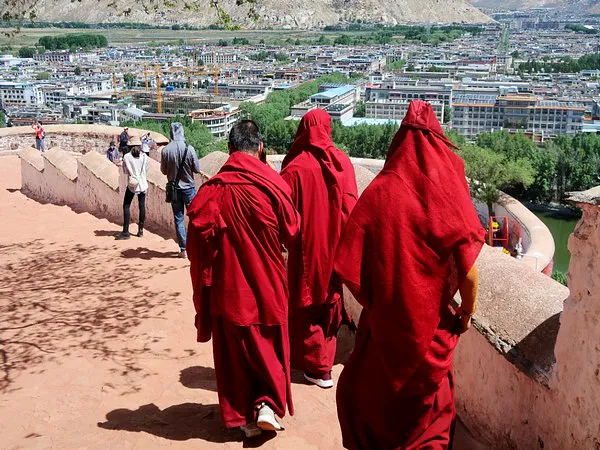Chinese government has set up a new centre for big data operations in Lhasa, raising fear among analysts and human rights experts this could be another means of monitoring or increasing policing of the local population.
The big data centre which began last month is reported to be the first such initiative at the regional level and a step toward big data integration and application sharing, China Daily reported.
According to state media, the data centre will boost digital services, including government affairs, economic development, social governance, people’s livelihoods, market supervision, finance, border prosperity, ecological environment protection, emergency fire control and cultural tourism.
However, rights experts and analysts are skeptical about claims made by state media, given the recent introduction of dual-use policy measures that infringe upon the personal freedom of Tibetans.
Back in September, New York-based Human Rights Watch (HRW) reported that Chinese authorities are significantly increasing policing, including an arbitrary collection of DNA from residents in many towns and villages throughout the Tibet Autonomous Region (TAR).
The rights watchdog said the available information indicates that people cannot decline to provide their DNA and that police do not need credible evidence of any criminal conduct.
A report from Lhasa municipality in April stated that blood samples for DNA collection were being systematically collected from children at kindergartens and from other local residents. A report from a Tibetan township in Qinghai province in December 2020 stated that DNA was being collected from all boys aged 5 and above.
“The Chinese government is already subjecting Tibetans to pervasive repression,” said Sophie Richardson, China director at Human Rights Watch. “Now the authorities are literally taking blood without consent to strengthen their surveillance capabilities.”
These mass DNA collection drives appear to take place in all seven prefectures or municipalities in the TAR, covering the western part of the Tibetan plateau. The collection drives are part of ongoing efforts by Chinese authorities to establish police presence at the grassroots level throughout the region.
According to HRW, no publicly available evidence suggests people can decline to participate or that police have credible evidence of criminal conduct that might warrant such collection.
The reports HRW studied indicate that DNA was to be collected from all residents of these areas, including temporary residents. None of the reports indicate any conditions under which a resident could refuse to provide a sample.

